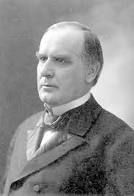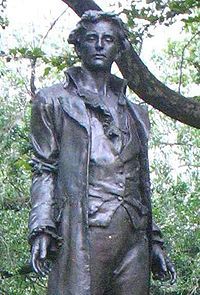“Punting the Pundits” is an Open Thread. It is a selection of editorials and opinions from around the news medium and the internet blogs. The intent is to provide a forum for your reactions and opinions, not just to the opinions presented, but to what ever you find important.
Thanks to ek hornbeck, click on the link and you can access all the past “Punting the Pundits”.
Follow us on Twitter @StarsHollowGzt
Tangerine Bolen: US Citizens’ Due Process Rights Saved from the NDAA’s Indefinite Detention
Thanks to determined citizens and a stalwart judge, American liberty is preserved from the NDAA’s most Orwellian provision
You can’t change the world if you don’t believe in impossible things. On Wednesday, I was reminded that my obstinate faith in the ability of citizens to stand up against an all-out assault on civil liberties by my own government is not so absurd, after all. Judge Katherine Forrest (an Obama-appointed judge) granted people everywhere a permanent injunction against an unconstitutional provision, section 1021, in the NDAA – and thus a reprieve from the terror of being indefinitely detained by the US military, without charge, evidence or trial.You can’t change the world if you don’t believe in impossible things. On Wednesday, I was reminded that my obstinate faith in the ability of citizens to stand up against an all-out assault on civil liberties by my own government is not so absurd, after all. Judge Katherine Forrest (an Obama-appointed judge) granted people everywhere a permanent injunction against an unconstitutional provision, section 1021, in the NDAA – and thus a reprieve from the terror of being indefinitely detained by the US military, without charge, evidence or trial.
These incredible powers that my government asserted were its absolute right to possess have been held in check by one judge, seven plaintiffs, four attorneys, public figures who publicized our case when national media would not, and supporters around the globe who pitched in to help cover court costs. My government is so unresponsive, our politics so compromised and our slide away from a democratic republic and toward tyranny so steep, that despair and paralysis would have been the more “normal” reaction in the face of things.
Tangerine Bolen is executive director of Revolution Truth, a citizen-driven first amendment campaign inspired by WikiLeaks.
New York Times Editorial: A Post-9/11 Conundrum
For 11 years, Americans have struggled to reach a sensible legal balance that protects both national security and civil liberties – an existential challenge made harder by the last president’s wild excesses and abuses of power in the name of combating terrorism. This week, a vote in Congress and a decision by a federal judge, Katherine Forrest, made starkly clear how much that remains a work in progress.
With little in the way of real debate or scrutiny, the House voted 301 to 118 to extend the FISA Amendments Act for five years, an unfortunate law passed in 2008 that expanded the government’s power to conduct surveillance without warrants in the future. It also retroactively approved the George W. Bush administration’s unlawful snooping in broad violation of Americans’ constitutionally protected privacy.
Moving in the other direction, Judge Forrest, of the Southern District of New York in Manhattan, on Wednesday permanently enjoined a controversial provision of a 2011 law in which Congress codified expansive interpretations of a president’s authority to detain individuals indefinitely, beyond the real needs of the war in Afghanistan, the campaign against Al Qaeda or legitimate counterterrorism efforts in general.
Are you, or is someone you know, a gadget freak? If so, you doubtless know that Wednesday was iPhone 5 day, the day Apple unveiled its latest way for people to avoid actually speaking to or even looking at whoever they’re with.
So is the new phone as insanely great as Apple says? Hey, I’ll leave stuff like that to David Pogue. What I’m interested in, instead, are suggestions that the unveiling of the iPhone 5 might provide a significant boost to the U.S. economy, adding measurably to economic growth over the next quarter or two.
Do you find this plausible? If so, I have news for you: you are, whether you know it or not, a Keynesian – and you have implicitly accepted the case that the government should spend more, not less, in a depressed economy.
Before I get there, let’s talk about where the buzz is coming from.
Mark Weisbrot: Moody’s Threat to Downgrade US Debt is Political, Not Fiscal
Moody’s threat this week to downgrade the US government’s credit rating says a whole lot more about the credit rating agency than it does about the US debt situation. It is really a way of telling the world that Moody’s is making a political statement, rather than an assessment of risk for investors who want actual information about US Treasury securities. This is really an embarrassment for Moody’s – since they are supposed to be evaluating risk – although most of the media didn’t seem to notice.
If you had to pick any sovereign bond in the world that has the least risk of default, it would have to be a US Treasury bond. Anyone who is holding bonds issued by the US government can be pretty sure that they will get their full interest payments and principal, if they hold it to maturity, unless there is some calamity as gigantic as a nuclear war. One reason is that the US has its own central bank and can simply create the money to pay bondholders, if necessary.
Dean Baker: Canada Proves the Decline of Unions is Not Inevitable
In polite circles in Washington it is common to view unions as a quaint anachronism. They may have made sense back when most workers had little education and worked in factories, but there really is no place for them in a 21st century economy. From this perspective, the sharp decline in union membership that we have seen in the last three decades is simply a natural process, sort of like the development of more powerful computers.
There is evidence that suggests otherwise, most notably that many other wealthy countries still have very high rates of unionisation. The share of the workforce represented by unions is 80 per cent or higher in many European countries. While some may want to attribute the eurozone crisis to factors like high unionisation rates (as opposed to inept central bankers) they face the problem that non-eurozone countries like Denmark and Sweden seem to be doing just fine.




 The Pentagon is the headquarters of the
The Pentagon is the headquarters of the  On this day in 1776, General George Washington asks for a volunteer for an extremely dangerous mission: to gather intelligence behind enemy lines before the coming Battle of Harlem Heights. Captain Nathan Hale of the 19th Regiment of the Continental Army stepped forward and subsequently become one of the first known American spies of the Revolutionary War.
On this day in 1776, General George Washington asks for a volunteer for an extremely dangerous mission: to gather intelligence behind enemy lines before the coming Battle of Harlem Heights. Captain Nathan Hale of the 19th Regiment of the Continental Army stepped forward and subsequently become one of the first known American spies of the Revolutionary War.
Recent Comments